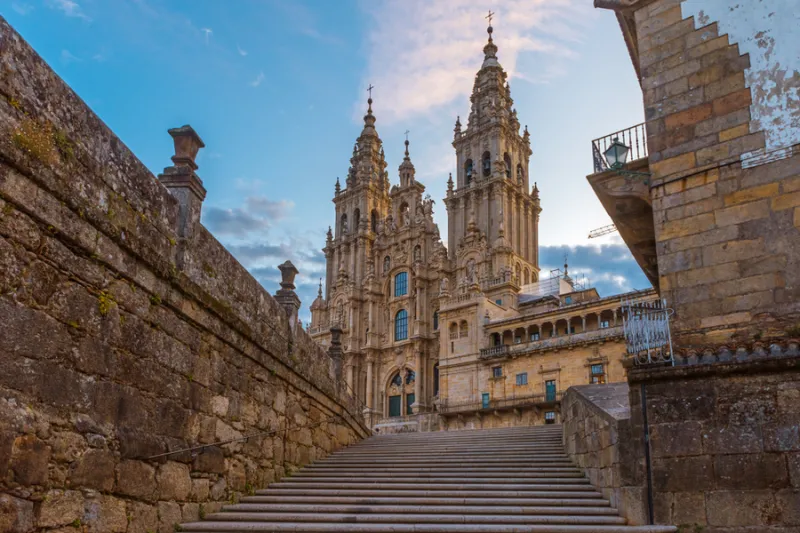
Washington D.C., Jul 28, 2021 / 09:05 am (CNA).
The Archbishop of Santiago de Compostela emphasized the graces of the current Jubilee Year at the shrine of St. James the Apostle, in a homily on Sunday, the saint’s feast day.
In his July 25 homily, Archbishop Julián Barrio Barrio of Santiago de Compostela called the Holy Year “a time of grace, healing and encounter,” according to Vatican News.
In Barrio’s homily, he highlighted the unifying benefits to praying to St. James. He said that the saint could help the people of Spain maintain a “fraternal coexistence.”
The feast of Saint James the Apostle fell on a Sunday this year, which means that pilgrims may gain an indulgence by visiting through the cathedral’s Holy Door. The beginning of the Jubilee Year of Compostela in Spain launched on December 31, 2020, and was set to continue for a year. However, because of the pandemic, Pope Francis decided it would continue through 2022.
This theme of this year’s jubilee is “Come out of your land! The Apostle is waiting for you!”
The name comes from Pope Francis’s letter to Archbishop Barrio last year in which he wrote: “Following in the footsteps of the Apostle, we leave our self, those certainties to which we cling, but with a clear objective in mind, we are not wandering beings, always revolving around ourselves without getting anywhere.”
“It is the voice of the Lord that calls us and, as pilgrims, we welcome it in an attitude of listening and seeking, undertaking this journey to meet God, others and ourselves,” the pope wrote.
Barrio made references to the coronavirus pandemic by praying for all victims, frontline workers and the deceased. “The mission of the Church,” he said, “is to lead people to God, but also to urge all people of goodwill to become aware of the root from which evils come, so that they may remedy the injustices and deplorable conditions in which many people live.”
The archbishop prayed that through the intercession of St. James, people would find hope and embrace “the liberating novelty of Christianity to give credible answers” to existential questions.
Barrio said that Western civilization is in need of Christ because it has an “impoverished soul” which sees life as meaningless. Christianity gives all hope, he said, because it offers “love and solidarity” through the charity of God, “who abandons no one.”
During a Holy Year, when the feast of Saint James falls on a Sunday, the Holy Door in the cathedral remains open for the whole year, and pilgrims can gain a plenary indulgence for themselves, for someone who is ill or for a deceased person.
To do so, pilgrims must visit the cathedral and fulfill the general conditions for receiving an indulgence: going to confession, receiving Communion, praying for the pope’s intentions, and possessing an interior detachment from sin.
Pilgrims have been making the journey to Santiago de Compostela for more than a thousand years to commemorate the life and sacrifice of James the apostle. The tradition of the Holy Year in Santiago de Compostela dates back to 1122, when Pope Callixtus II first allowed for a plenary indulgence for pilgrims to the shrine.
The cathedral was completed in 1211 and houses the relics of St. James in its crypt. It is the destination of the “Camino de Santiago” pilgrimage route.
If you value the news and views Catholic World Report provides, please consider donating to support our efforts. Your contribution will help us continue to make CWR available to all readers worldwide for free, without a subscription. Thank you for your generosity!
Click here for more information on donating to CWR. Click here to sign up for our newsletter.




Leave a Reply